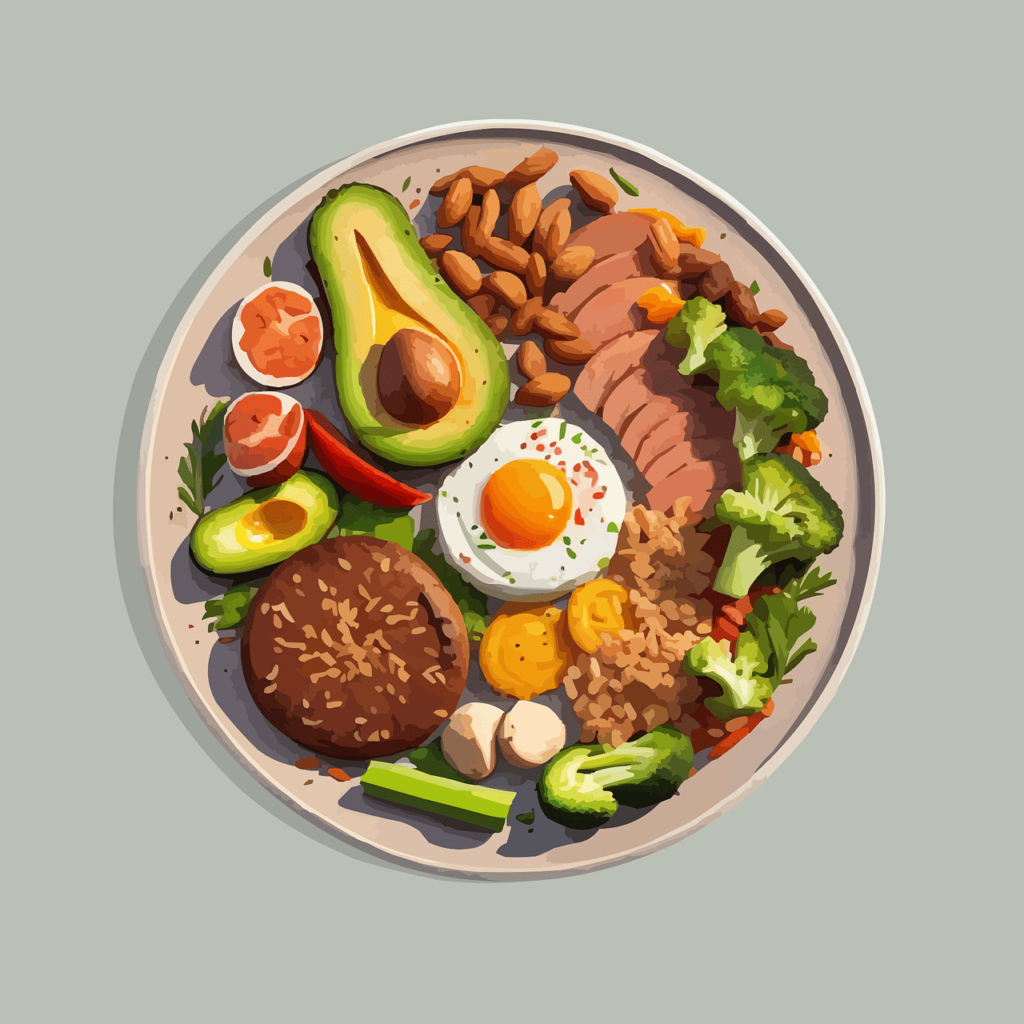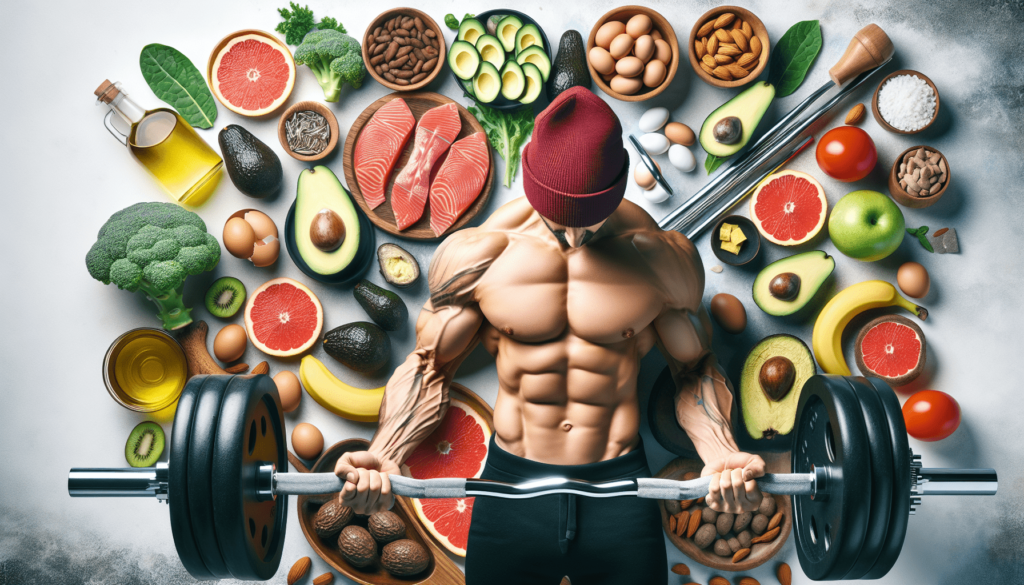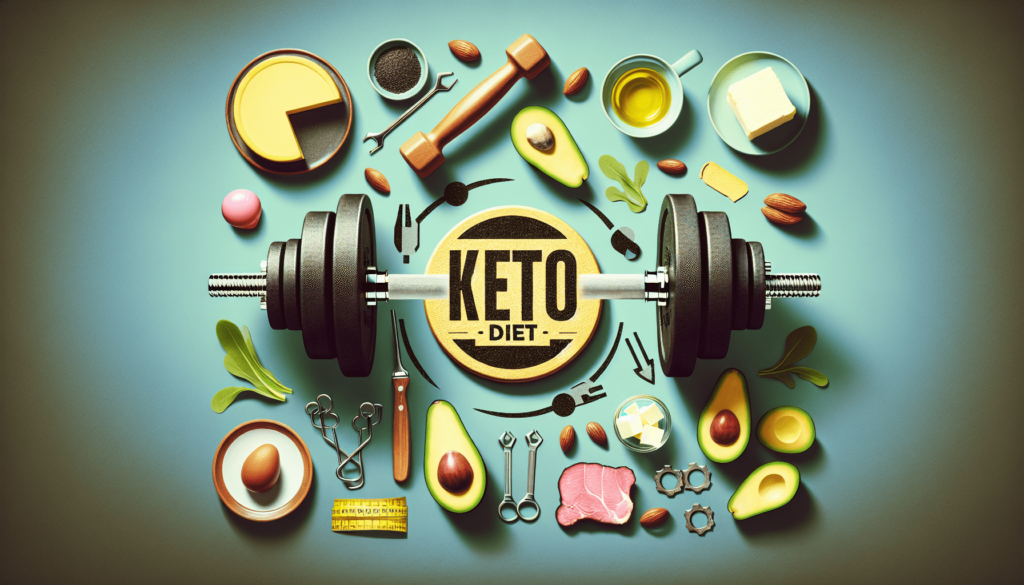So you’ve decided to try out the popular keto diet, but you’re concerned about losing muscle mass in the process. Well, fear not! In this article, we will guide you on exactly how to build lean muscle while following a keto diet. From the right macronutrient ratios to the most effective exercises, we’ve got you covered. Say goodbye to the misconception that keto and muscle building are mutually exclusive – with our tips and tricks, you’ll be well on your way to achieving your desired physique.
Importance of Protein
Adequate protein intake
When it comes to building lean muscle mass, protein plays a vital role in your diet. Protein is the building block of muscle and helps to repair and grow muscle tissue. It is important to ensure that you are consuming an adequate amount of protein to support muscle growth. The recommended daily intake of protein for someone looking to build muscle is around 0.8-1 gram per pound of body weight. This means that if you weigh 150 pounds, you should aim to consume between 120-150 grams of protein per day.
High-quality protein sources
Not all protein sources are created equal. It is important to choose high-quality protein sources that provide all the essential amino acids. Examples of high-quality protein sources include lean meats such as chicken, turkey, and lean beef, as well as fish, eggs, and dairy products. Plant-based protein sources such as legumes, tofu, and quinoa can also be included in your diet. Aim to include a variety of protein sources in your meals to ensure you are getting all the necessary nutrients.
Caloric Surplus
Determining caloric needs
To build lean muscle mass, you need to consume more calories than you burn, creating a caloric surplus. However, it is important to determine your individual caloric needs based on your activity level, age, gender, and goals. There are online calculators that can help you estimate your daily caloric needs. It is important to note that this is just a starting point and may need to be adjusted based on your progress.
Creating a slight surplus
Creating a slight caloric surplus is important for building lean muscle mass without excessive fat gain. Aim to consume around 250-500 calories above your maintenance level. This slight surplus provides your body with the extra energy it needs for muscle growth while minimizing fat gain. Keep in mind that the surplus should come from a balance of macronutrients, with protein being a priority.

This image is property of pixabay.com.
Timing and Frequency of Meals
Splitting meals evenly throughout the day
When it comes to building lean muscle mass, the timing and frequency of your meals can play a role in optimizing muscle growth. Splitting your meals evenly throughout the day helps to provide a steady stream of nutrients to your muscles, allowing for continuous repair and growth. Aim to have 4-6 smaller meals spaced evenly throughout the day, rather than relying on 1-2 large meals.
Timing protein intake
Another important aspect of meal timing is when to consume your protein. It is recommended to spread your protein intake evenly throughout the day, with a focus on consuming protein-rich meals or snacks before and after your workouts. Consuming protein before your workout provides your muscles with the necessary amino acids to fuel your workout and support muscle growth. Consuming protein after your workout helps to initiate muscle repair and recovery.
Resistance Training
Engaging in regular resistance training
To build lean muscle mass, resistance training is key. This involves engaging in exercises that target your muscles and progressively overloading them over time. Weightlifting, bodyweight exercises, and resistance bands are all effective forms of resistance training. Aim to engage in resistance training at least 2-3 times per week, allowing for adequate rest and recovery between sessions.
Focus on compound exercises
When it comes to resistance training, focusing on compound exercises is important for building lean muscle mass. Compound exercises involve multiple muscle groups and joints, allowing for greater stimulation and overall muscle growth. Examples of compound exercises include squats, deadlifts, bench presses, and pull-ups. Incorporating these exercises into your routine will help to maximize your muscle-building potential.

This image is property of pixabay.com.
Monitoring and Adjusting Macros
Tracking macronutrient intake
To ensure you are providing your body with the necessary nutrients for muscle growth, it is important to track your macronutrient intake. Macronutrients include protein, carbohydrates, and fats. By tracking your intake, you can ensure you are consuming enough protein to support muscle growth, as well as the right balance of carbohydrates and fats for energy and overall health. There are various apps and websites available that make tracking your macros simple and convenient.
Adjusting macros as needed
It is also important to adjust your macros as needed based on your progress and goals. If you find that you are not making progress in building lean muscle mass, you may need to increase your protein intake and potentially adjust your carbohydrate and fat ratios. It is important to listen to your body and make changes accordingly to optimize muscle growth.
Supplementing for Optimal Results
Consideration of supplements
While it is possible to build lean muscle mass through diet alone, some individuals may benefit from certain supplements that can support muscle growth. Protein powders, such as whey or plant-based options, can help ensure you are meeting your protein needs. Creatine is another popular supplement that can enhance performance and muscle growth. It is important to note that supplements should not replace a balanced diet but can be used to complement it.
Importance of electrolytes
When engaging in regular resistance training and consuming a high-protein diet, it is important to ensure you are maintaining proper electrolyte balance. Electrolytes, such as sodium, potassium, and magnesium, play a crucial role in muscle function and hydration. Consider incorporating electrolyte-rich foods or drinks into your diet, or consider using electrolyte supplements to support your muscle-building efforts.

This image is property of pixabay.com.
Managing Fat Intake
Eating healthy fats
While it is important to consume an adequate amount of healthy fats, it is also important to monitor and manage your fat intake to avoid excessive fat gain. Incorporating sources of healthy fats, such as avocados, nuts, seeds, and olive oil, into your meals can provide essential nutrients and support overall health. However, it is important to consume these fats in moderation and ensure they fit into your overall caloric intake and macronutrient goals.
Avoiding excessive fat intake
While fats are an important part of a balanced diet, excessive fat intake can impede your progress in building lean muscle mass. Consuming more calories from dietary fat than you need can lead to an excessive caloric surplus and potential fat gain. It is important to strike a balance between consuming enough healthy fats for optimal health and consuming the right amount to support muscle growth without excessive fat gain.
Hydration and Recovery
Importance of hydration
Staying hydrated is crucial for overall health and muscle growth. Water plays a key role in numerous bodily functions, including nutrient absorption, muscle repair, and maintaining proper body temperature. Aim to drink an adequate amount of water throughout the day, especially during and after workouts, to support optimal hydration and muscle recovery.
Adequate sleep and rest
In addition to hydration, ensuring you are getting adequate sleep and rest is vital for muscle growth. During sleep, your body carries out important repair and recovery processes, including muscle tissue repair. Aim for 7-9 hours of quality sleep each night to optimize recovery and support your muscle-building efforts. Additionally, incorporating rest days into your training routine allows your muscles to recover and grow stronger.

Avoiding Excessive Cardio
Limiting excessive aerobic exercise
While cardiovascular exercise has numerous health benefits, excessive aerobic exercise can impede your progress in building lean muscle mass. Cardiovascular exercise typically burns a significant amount of calories, potentially negating the caloric surplus necessary for muscle growth. It is important to include some form of cardiovascular exercise for overall health, but be mindful not to overdo it and hinder your muscle-building efforts.
Choosing appropriate cardio options
When incorporating cardiovascular exercise into your routine, opt for lower-intensity options that do not excessively tax your muscles and hinder recovery. Walking, cycling, swimming, and light jogging are all viable options that can be incorporated into your routine without compromising muscle growth. Aim for 2-3 cardio sessions per week, keeping in mind that the priority should still be on resistance training to build lean muscle mass.
Staying Consistent and Patient
Building lean muscle takes time
Building lean muscle mass is a process that takes time and consistency. It is important to have realistic expectations and understand that significant muscle growth cannot happen overnight. Consistently following a balanced diet and resistance training routine over an extended period is key to achieving your desired results.
Consistency and perseverance
Consistency is key when it comes to building lean muscle mass. Stick to your diet and exercise routine, even on days when you may not feel motivated. It is through consistent effort that you will see progress and ultimately achieve your muscle-building goals. Persevere through any setbacks or plateaus and remember that building lean muscle is a journey that requires dedication and patience.


